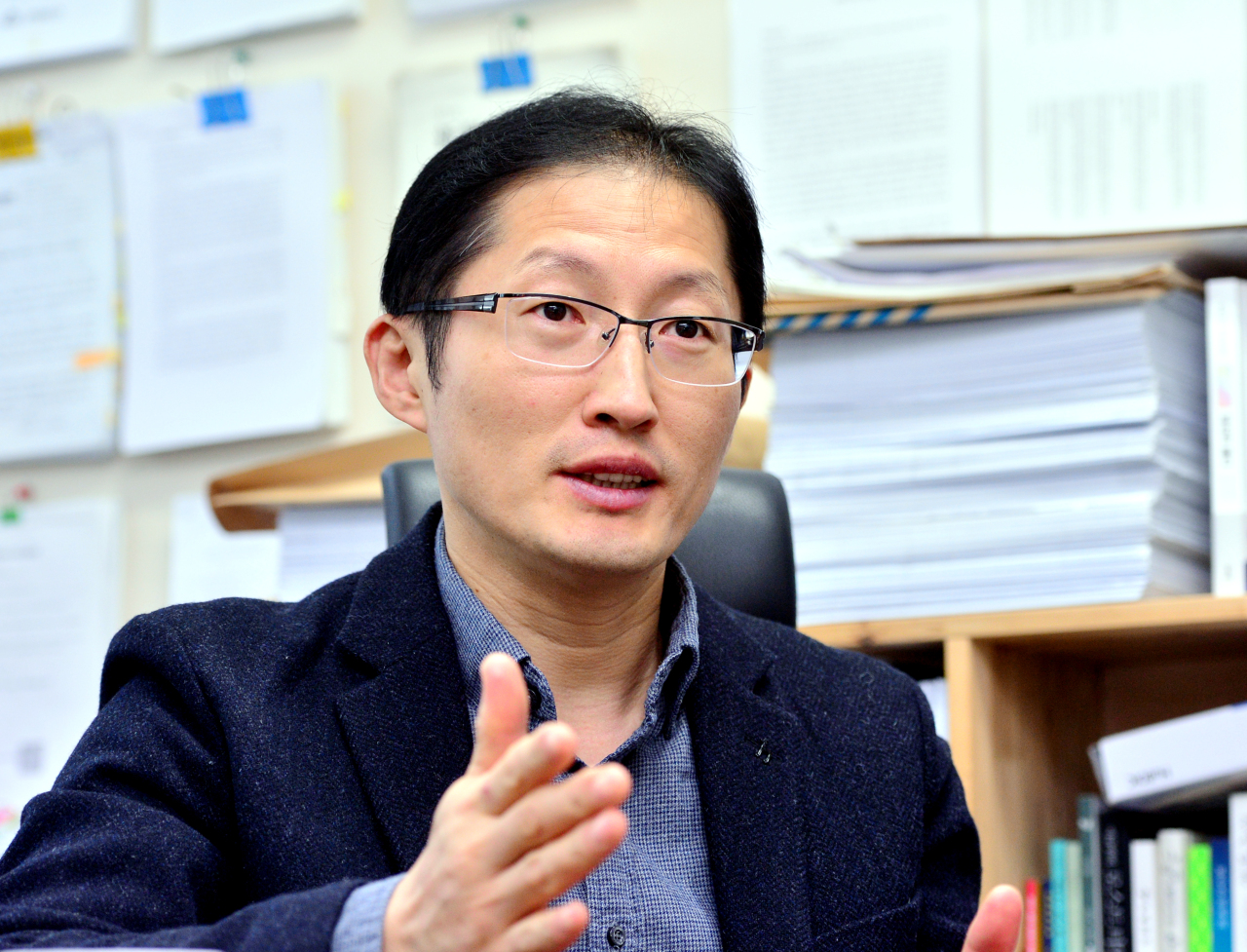[Herald Interview] Lawyer on mission to redeem justice failures
By Kim ArinPublished : Jan. 21, 2020 - 18:28
Our criminal justice system is not perfect, and most vulnerable to its flaws and errors are the society’s disadvantaged and marginalized, according to one lawyer helping exonerate those wrongly convicted.
The celebrated lawyer, Park Joon-young, gained fame for defending men and women who have fallen victim to wrongful convictions, working to prove them innocent.
“Laws may be designed to protect the citizens, but they are not foolproof -- because at the end of the day, their execution is led by people, and people make mistakes,” Park told The Korea Herald on Tuesday at his office in Seocho, southern Seoul.

Park has spearheaded a slew of high-profile legal battles for conviction reversals, including one recently involving a 53-year-old man surnamed Yun.
Yun spent nearly 20 years behind bars as the convicted killer of a 13-year-old girl until he was released on parole in 2009, followed by 10 years on the outside as an ex-con. Hopes of clearing his name surfaced last year when new DNA technology identified another man by the name of Lee Chun-jae as the real perpetrator. In ensuing interviews with police, Lee admitted he was responsible for Yun’s crime, and said he was sorry someone else had paid the price for his wrongdoing. Last week the court decided to grant Yun a new trial, which starts in February.
Lee, whom police point to as the culprit in at least 10 rapes and murders that took place from 1986-1991, will be summoned to testify at Yun’s retrial, Park said.
“As we know, Lee will not face punishment due to the expired statute of limitations. But the retrial would at least give Lee a chance to own up to his guilt in public,” he said. “And he had told prosecutors he had intentions of showing up at court and bearing witness, which just may be one of the few acts of conscience he could pull off at this point.”
Park said he would not have taken up Yun’s case had he not found grounds to believe his protests of innocence were sincere.
He said the records of Yun’s investigation and the court proceedings from the 1980s and ’90s suggested fishiness on multiple levels.
“For instance, Yun could barely read and write, and yet the affidavit he supposedly submitted to police is surprisingly eloquent. Court memos also reveal he was deprived of a right to counsel,” he said.
“Yun was orphaned at a young age and had to drop out of school. He spent a large part of his teenage years homeless and forced to make a living for himself despite a permanent limp in his left leg,” he said. “Do you think this would have happened if he could afford a lawyer and had a family who could look after him?”
Park said the investigators who tortured Yun into a false confession will also be summoned to court, adding that one has already fessed up.
“At first, former cops tried to downplay Lee’s confession, saying it wasn’t credible,” he said. “But Lee gave accounts with the kind of details that only the killer would have known.”
Park said, however, that he was wary of turning Yun’s story into a blame game targeting past investigative agencies.
“They had to rely mostly on testimonies 30 years ago as there were no closed-circuit TVs or forensic technology to aid investigations,” he said, adding that he regretted having disclosed the full names of investigators responsible for false accusations in his 2016 memoir, “Justice Delayed.”
“In the newest edition of the book, I used made-up names for police officers and prosecutors who were culpable because I realized what naming them did was incite shaming and finger-pointing,” he said. “But they deserve a chance for repentance and forgiveness.”
Park also noted that there have been many changes since that time in the way criminal investigations are carried out, and that the kind of physical violence used against suspects in past investigations -- once considered “a matter of course” -- would be unthinkable today.
But that is not to say judicial injustice is a thing of the past.
There are ways that investigators can put pressure on suspects who may well be innocent, Park said, such as coercive interrogation techniques.
On recently passed revisions to criminal procedure laws, Park expressed skepticism that the changes would be in the interests of “ordinary folks.”
For one thing, the revised system can be expected to increase legal costs for citizens, he said.
“Before the change, there would be instances where prosecutors would catch things police missed,” he said. “But the new laws give prosecutors only 90 days to review investigations carried out by the police. Complainants who put together their cases faster are likely to fare better, which means they would have to acquire legal help earlier on in the process.”
He also forecast that the conviction rate will fall, as prosecutors will have to indict suspects based on investigations they did not conduct.
“A lot of the opinions that support stripping the prosecutors of their investigative powers is based on the way they handled cases involving certain political figures,” he said.
“But elite crimes are not the only crimes that prosecutors investigate, but also day-to-day crimes that could happen to just about anyone,” he said. “I cannot help but feel the bills are about the big guys, not the little guys.”
By Kim Arin (arin@heraldcorp.com)








![[Kim Seong-kon] Democracy and the future of South Korea](http://res.heraldm.com/phpwas/restmb_idxmake.php?idx=644&simg=/content/image/2024/04/16/20240416050802_0.jpg&u=)










![[Today’s K-pop] Zico drops snippet of collaboration with Jennie](http://res.heraldm.com/phpwas/restmb_idxmake.php?idx=642&simg=/content/image/2024/04/18/20240418050702_0.jpg&u=)